#abolish slave labor
Text
An inmate in a California state prison donated $17.74 to Gaza.
He worked 136 hours for this.

https://gofund.me/c838b29f
#reposting from twitter because i haven't seen this on tumblr#free palestine#abolish prisons#abolish slave labor
9 notes
·
View notes
Text

Slave labor
#Slave labor#slaves#anti slavery#chattel slavery#wage slavery#slavery#inmate#jail#prison labor#prison#abolish capitalism#abolish the police#abolish the monarchy#abolish prisons#abolish the death penalty#abolish the state#abolish the electoral college#working class#class war#ausgov#politas#auspol#tasgov#taspol#australia#fuck neoliberals#neoliberal capitalism#anthony albanese#albanese government#erie county
2 notes
·
View notes
Text
A taxonomy of corporate bullshit
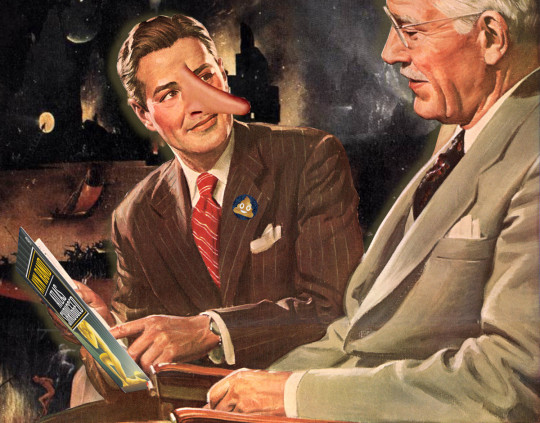
Next Tuesday (Oct 31) at 10hPT, the Internet Archive is livestreaming my presentation on my recent book, The Internet Con.

There are six lies that corporations have told since time immemorial, and Nick Hanauer, Joan Walsh and Donald Cohen's new book Corporate Bullsht: Exposing the Lies and Half-Truths That Protect Profit, Power, and Wealth in America* provides an essential taxonomy of this dirty six:
https://thenewpress.com/books/corporate-bullsht
In his review for The American Prospect, David Dayen summarizes how these six lies "offer a civic-minded, reasonable-sounding justification for positions that in fact are motivated entirely by self-interest":
https://prospect.org/culture/books/2023-10-27-lies-my-corporation-told-me-hanauer-walsh-cohen-review/
I. Pure denial
As far back as the slave trade, corporate apologists and mouthpieces have led by asserting that true things are false, and vice-versa. In 1837, John Calhoun asserted that "Never before has the black race of Central Africa, from the dawn of history to the present day, attained a condition so civilized and so improved, not only physically, but morally and intellectually." George Fitzhugh called enslaved Africans in America "the freest people in the world."
This tactic never went away. Children sent to work in factories are "perfectly happy." Polluted water is "purer than the water that came from the river before we used it." Poor families "don't really exist." Pesticides don't lead to "illness or death." Climate change is "beneficial." Lead "helps guard your health."
II. Markets can solve problems, governments can't
Alan Greenspan made a career out of blithely asserting that markets self-correct. It was only after the world economy imploded in 2008 that he admitted that his doctrine had a "flaw":
https://www.pbs.org/newshour/show/greenspan-admits-flaw-to-congress-predicts-more-economic-problems
No matter how serious a problem is, the market will fix it. In 1973, the US Chamber of Commerce railed against safety regulations, because "safety is good business," and could be left to the market. If unsafe products persist in the market, it's because consumers choose to trade safety off "for a lower price tag" (Chamber spox Laurence Kraus). Racism can't be corrected with anti-discrimination laws. It's only when "the market" realizes that racism is bad for business that it will finally be abolished.
III. Consumers and workers are to blame
In 1946, the National Coal Association blamed rampant deaths and maimings in the country's coal-mines on "carelessness on the part of men." In 2003, the National Restaurant Association sang the same tune, condemning nutritional labels because "there are not good or bad foods. There are good and bad diets." Reagan's interior secretary Donald Hodel counseled personal responsibility to address a thinning ozone layer: "people who don’t stand out in the sun—it doesn’t affect them."
IV. Government cures are always worse than the disease
Lee Iacocca called 1970's Clean Air Act "a threat to the entire American economy and to every person in America." Every labor and consumer protection before and since has been damned as a plague on American jobs and prosperity. The incentive to work can't survive Social Security, welfare or unemployment insurance. Minimum wages kill jobs, etc etc.
V. Helping people only hurts them
Medicare will "destroy private initiative for our aged to protect themselves with insurance" (Republican Senator Milward Simpson, 1965). Covid relief is unfair to people that are currently in the workforce" (Republican Governor Brian Kemp, 2021). Welfare produces "learned helplessness."
VI. Everyone who disagrees with me is a socialist
Grover Cleveland's 2% on top incomes is "communistic warfare against rights of property" (NY Tribune, 1895). "Socialized medicine" will leave "our children and our children’s children [asking] what it once was like in America when men were free" (Reagan, 1961).
Everything is "socialism": anti-child labor laws, Social Security, minimum wages, family and medical leave. Even fascism is socialism! In 1938, the National Association of Manufacturers called labor rights "communism, bolshevism, fascism, and Nazism."
As Dayen says, it's refreshing to see how the right hasn't had an original idea in 150 years, and simply relies on repeating the same nonsense with minor updates. Right wing ideological innovation consists of finding new ways to say, "actually, your boss is right."
The left's great curse is object permanence: the ability to remember things, like the fact that it used to be possible for a worker to support a family of five on a single income, or that the economy once experienced decades of growth with a 90%+ top rate of income tax (other things the left manages to remember: the "intelligence community" are sociopathic monsters, not Trump-slaying heroes).
When the business lobby rails against long-overdue antitrust action against Amazon and Google, object permanence puts it all in perspective. The talking points about this being job-destroying socialism are the same warmed-over nonsense used to defend rail-barons and Rockefeller. "If you don't like it, shop elsewhere," has been the corporate apologist's line since slavery times.
As Dayen says, Corporate Bullshit is a "reference book for conservative debating points, in an attempt to rob them of their rhetorical power." It will be out on Halloween:
https://bookshop.org/a/54985/9781620977514

If you'd like an essay-formatted version of this post to read or share, here's a link to it on pluralistic.net, my surveillance-free, ad-free, tracker-free blog:
https://pluralistic.net/2023/10/27/six-sells/#youre-holding-it-wrong
#pluralistic#corporate bullshit#lies#books#reviews#taxonomies#labor#denialism#consumerism#Nick Hanauer#Joan Walsh#Donald Cohen#history#object permanence#taking the right seriously
834 notes
·
View notes
Text
In fact, far more Asian workers moved to the Americas in the 19th century to make sugar than to build the transcontinental railroad [...]. [T]housands of Chinese migrants were recruited to work [...] on Louisiana’s sugar plantations after the Civil War. [...] Recruited and reviled as "coolies," their presence in sugar production helped justify racial exclusion after the abolition of slavery.
In places where sugar cane is grown, such as Mauritius, Fiji, Hawaii, Guyana, Trinidad and Suriname, there is usually a sizable population of Asians who can trace their ancestry to India, China, Japan, Korea, the Philippines, Indonesia and elsewhere. They are descendants of sugar plantation workers, whose migration and labor embodied the limitations and contradictions of chattel slavery’s slow death in the 19th century. [...]
---
Mass consumption of sugar in industrializing Europe and North America rested on mass production of sugar by enslaved Africans in the colonies. The whip, the market, and the law institutionalized slavery across the Americas, including in the U.S. When the Haitian Revolution erupted in 1791 and Napoleon Bonaparte’s mission to reclaim Saint-Domingue, France’s most prized colony, failed, slaveholding regimes around the world grew alarmed. In response to a series of slave rebellions in its own sugar colonies, especially in Jamaica, the British Empire formally abolished slavery in the 1830s. British emancipation included a payment of £20 million to slave owners, an immense sum of money that British taxpayers made loan payments on until 2015.
Importing indentured labor from Asia emerged as a potential way to maintain the British Empire’s sugar plantation system.
In 1838 John Gladstone, father of future prime minister William E. Gladstone, arranged for the shipment of 396 South Asian workers, bound to five years of indentured labor, to his sugar estates in British Guiana. The experiment with “Gladstone coolies,” as those workers came to be known, inaugurated [...] “a new system of [...] [indentured servitude],” which would endure for nearly a century. [...]
---
Bonaparte [...] agreed to sell France's claims [...] to the U.S. [...] in 1803, in [...] the Louisiana Purchase. Plantation owners who escaped Saint-Domingue [Haiti] with their enslaved workers helped establish a booming sugar industry in southern Louisiana. On huge plantations surrounding New Orleans, home of the largest slave market in the antebellum South, sugar production took off in the first half of the 19th century. By 1853, Louisiana was producing nearly 25% of all exportable sugar in the world. [...] On the eve of the Civil War, Louisiana’s sugar industry was valued at US$200 million. More than half of that figure represented the valuation of the ownership of human beings – Black people who did the backbreaking labor [...]. By the war’s end, approximately $193 million of the sugar industry’s prewar value had vanished.
Desperate to regain power and authority after the war, Louisiana’s wealthiest planters studied and learned from their Caribbean counterparts. They, too, looked to Asian workers for their salvation, fantasizing that so-called “coolies” [...].
Thousands of Chinese workers landed in Louisiana between 1866 and 1870, recruited from the Caribbean, China and California. Bound to multiyear contracts, they symbolized Louisiana planters’ racial hope [...].
To great fanfare, Louisiana’s wealthiest planters spent thousands of dollars to recruit gangs of Chinese workers. When 140 Chinese laborers arrived on Millaudon plantation near New Orleans on July 4, 1870, at a cost of about $10,000 in recruitment fees, the New Orleans Times reported that they were “young, athletic, intelligent, sober and cleanly” and superior to “the vast majority of our African population.” [...] But [...] [w]hen they heard that other workers earned more, they demanded the same. When planters refused, they ran away. The Chinese recruits, the Planters’ Banner observed in 1871, were “fond of changing about, run away worse than [Black people], and … leave as soon as anybody offers them higher wages.”
When Congress debated excluding the Chinese from the United States in 1882, Rep. Horace F. Page of California argued that the United States could not allow the entry of “millions of cooly slaves and serfs.” That racial reasoning would justify a long series of anti-Asian laws and policies on immigration and naturalization for nearly a century.
---
All text above by: Moon-Ho Jung. "Making sugar, making 'coolies': Chinese laborers toiled alongside Black workers on 19th-century Louisiana plantations". The Conversation. 13 January 2022. [All bold emphasis and some paragraph breaks/contractions added by me.]
456 notes
·
View notes
Text
The reserve army of labor is one of the strongest tools for the maintenance of bourgeois control over the proletariat. The process is simple. Keep a large supply of unemployed or underemployed workers who become desperate for work. These desperate workers are willing to accept any wage in order to, y'know, not get social murdered via. hunger or exposure. Thus, workers who are currently employed are under "threat" by the unemployed. The bourgeoisie can then turn to the employed worker and say: "see these hungry, homeless people? if you don't take a pay cut, I'll hire them for your cut pay and then fire you". The employed, under threat of becoming a member of the reserve army of labor and all that entails, is then forced to comply.
The expansion of the reserve army of labor was actually used as a defense of keeping the institution of slavery. The argument went as so: the freeing of slaves would expand the reserve army of labor, making employed workers' task of keeping their wages higher tougher. Can you, dear reader, spot why this argument is weak and undialectical? If you answered "but wait, isn't slavery the lowest of the low in terms of the reserve army since they are compelled to work with no wages?", you are correct! Counter to what these "socialists" thought, emancipation represented the raising of the floor, not the lowering of the ceiling.
As we know intimately well, slavery still exists in the usa. Prison labor is the cheapest of all labor in the land. A majority of made in the usa products are made via or was partially made by prison labor. These prisoners also constitute the reserve army of labor. This goes hand-in-hand with the criminalization of POC and homelessness. You can be compelled to work for little to no wages by simply being thrown in prison. So the abolishment of prison labor, just like the abolishment of chattel slavery, is one of utmost important for striking a deep blow against the use of the reserve army of labor.
SN: AZ38
189 notes
·
View notes
Text
After African missionaries circulated initial reports about the slave labor behind sugar in the 1790s, some consumers desisted from sugar entirely -- "anti-saccharites", mostly fervent Christians such as Quakers. As the East India importers created a market in Britain, anti-slavery societies became their free marketing teams, widely distributing pamphlets such as "What Does Your Sugar Cost?" A Cottage Conversation on the Subject of British Negro Slavery. Meanwhile, in America, the free-produce movement was led by black women, who encouraged their segregated groceries to buy only slavery-free goods.
The bind that free Black Americans faced in sourcing their food and raw materials was especially harsh. They were forced to buy "ethical" expensive cotton from white farmers instead of black slaves, which frustrated those trying to support black businesses. They sought coffee from Liberia and Haiti, hoping that the majority black demographics of these countries would support black uplift and prevent slave labor, and these created natural (and, indeed, slavery-free) coffee industries in those countries which indeed persisted for some decades.
The most surprising part of this story comes in the 1840s. After abolishing slavery in 1836, Britain had placed tariffs on slave-produced sugar in order to ensure fairness for British sugar producers who paid their laborers. This inflated sugar prices generally. Without tariffs, "free-labour sugar" would cost three times as much as its competition, defeating the East Indian importers' argument that slavery was a corrupt process which artificially inflated prices. It soon became clear that the writing was on the wall. In 1845, the primary importer of "free-labour sugar" exited the sugar market, and the following year, Britain decided to remove all the tariffs, for the benefit of consumers. Free-labour sugar completely vanished as a category thereafter.
Meanwhile in the United States, abolitionists criticized the free-produce movement as ineffective; similar to "free-labour sugar", it only placed an extra economic burden on those struggling to live ethically. It was recognized on both sides of the Atlantic that making individual consumer choices was not enough, and that systemic change was necessary to permanently eliminate slavery. As a status symbol, though, "free cotton made by escaped slaves" continued to be worn in Britain and attracted comment in aristocratic salons into the 1860s. In this final stage of the movement, free labor was considered to be part of a civilizing project, a way to train ex-slaves in useful arts.
https://www.reddit.com/r/AskHistorians/comments/138i5at/comment/jj04qsx/?context=3
886 notes
·
View notes
Text
How sad and fucked up is it that a webdomain as important as "abolitionist.com" is owned not by someone trying to abolish slave labor, or even by some asshole who wants to ban abortion or any real relevant issue, but is in fact owned by the guys who think all carnivorous animals should be veganized.
This article is kind of dishonestly talking about it like it's not something the author really wants, but some kind of hypothetical thought exercise, even though he's been arguing with people on twitter for years about how remaking all of nature with biotech is something he thinks we absolutely must morally strive for.

Why are 117,000 fuckers following this shithead? they can't all be understandable hatefollows.
147 notes
·
View notes
Note
Morpheus Endless has never had much expectations from his life: he is a third child, so he has always known he'd never ascend his father's throne. Besides, he's an omega, which makes him merely a commodity. He has never been fond of his life at home, his parents ignoring him and his siblings too lost in their own misery and shenanigans, but he was cautious of his prospects, for he has always realized how much he'd be dependent on his future spouse.
For once, gods seem to smile at him because Morpheus gets suddenly betrothed to King Robert Gadling, ruler of the neighboring lands. Robert has a reputation as a fair king, although Morpheus finds it very alarming and disappointing that he keeps slaves and that slavery is a norm in his kingdom in general. Still, everyone knows that Robert treated his wife Eleanor with respect despite the fact that she was an omega, and this gives Morpheus hope.
What Morpheus doesn't know is that his future alpha has no desire to get married again. He simply has to. His beloved queen died as a result of ectopic pregnancy, and he still needs an heir. And better an heir and a spare. Robert agrees to the union with the Endless dynasty: in fact, that's an incredibly fortunate deal for his kingdom because his neighbors are way more powerful and rich. But for him, it's nothing but a business agreement.
That's why Robert is taken aback when he finally meets his fiancé at the wedding: Prince Morpheus is ethereally beautiful. Robert falls in love at first sight and hates himself for it because it feels like he's betraying the memory of Eleanor. He's perfectly polite to his new husband, albeit cold and neglectful, and Morpheus can't figure out what he has done to displease his alpha: he is well aware of many faults of his character, but he really tried to be on his best behavior, and besides, they barely interacted at all.
Robert gets drunk at the wedding. Morpheus waits for him till dawn, but he doesn't come to consummate the marriage. He continues to ignore Morpheus' existence till his omega goes into heat, and that's when Robert can no longer deny the pull and longing. And he does need an heir. Morpheus' heat is everything they both ever wanted, days and nights spent in tender lovemaking, and Morpheus dares to hope that from now on, it is going to be different...but once his heat has run its course, he wakes up alone and heartbroken.
Shortly after, they find out that Morpheus is pregnant. Robert is excited and torn apart between his feelings for his mate and his love for the memory of Eleanor. He doesn't know what to do, so he does nothing. He only realizes what a fool he has been when Morpheus goes into labor, and it turns out that the baby is not well positioned. Morpheus spends two days in labor, and there are serious fears that neither he nor the baby would make it. Morpheus is barely alive by the end of the ordeal, but he miraculously gives birth to a healthy baby boy - Robyn. He himself is seriously ill, though, and in fever. Robert never leaves his side and prays to every god that his mate will survive so they can have a second chance. He is ready to do anything to make Morpheus happy, from abolishing slavery that his mate resents so much to pandering to his every whim.
OOO this is such a great outline for a story!! You can definitely see both perspectives here. Hob didn't want to remarry, he's traumatised, he feels so many things and everything is moving so quickly. Meanwhile Morpheus is in a completely new place with new people, knowing that he has a duty to fulfil, trying his best... only to find that nothing he does is enough for his new husband.
Morpheus even understands that his pregnancy must be a huge trigger for Hob, so he does his best not to mention it at all. He even hides the bump under draping clothes so his husband won't be reminded of his condition. Hob wavers between spending time with Morpheus and ignoring him for days. He forgets that Morpheus is going through this for the first time, essentially alone.
The traumatic labour does at least snap Hob out of his selfishness. He refuses to leave Morpheus even during the worst, when they think the omega might die. After Robyn is born, Hob takes care of him personally, feeding him and holding him as much as possible, and spending the rest of his time at Morpheus’s bedside. He doesn't deserve his omega, he's well aware of that - but Morpheus deserves to live! And Hob wants a chance to love him, at the very least. He wants Morpheus so much he can hardly breathe. He'd thought it was silly that his omega cared so much about slavery - it's just what Hob’s kingdom has always done. But now Hob would give anything to talk to be Morpheus about it. To be guided by his mate's principles. They could build a better realm together.
When Morpheus wakes up, he's surprised to see his mate beside him, with their newborn baby snuggled up in the crook of his arm. Morpheus hardly recognises Hob. He looks tired and soft and his eyes are full of tenderness. Morpheus wearily asks for water and Hob personally helps him to drink, slow and careful.
Morpheus is sort of expecting a grovelling apology that he'll have to listen to and then he'll have to be the bigger person, to give Hob the balm of forgiveness... but that doesn't happen. Hob just. Does stuff. Instead of making promises. He nurses Morpheus through his recovery, and supports him as he starts to care for Robyn more each day. He brings matters of state and ideas to Morpheus’s attention and asks for his opinions. He sleeps beside Morpheus each night (not in the same bed, but in the same room) until he's finally invited to join his omega. He doesn't even mention sex until Morpheus brings it up. And it's only much later that Morpheus finds out that slavery was outlawed while he was sick.
It doesn't mean that Hob didn't make mistakes. But it does mean that he won't be repeating them. And that Morpheus can finally learn to trust him. He's happy to invite Hob to share his first heat after giving birth. There's no alpha he'd rather have.
And Eleanor's spirit is finally smiling down on them, instead of repeatedly smacking Hob around the head for his behaviour <33
102 notes
·
View notes
Text
Non-paywall version here.
"When Arley Gill, head of Grenada’s National Reparations Committee, envisioned his work seeking repair for centuries of enslavement on the Caribbean island, one thing was certain: It was going to be a long slog.
But just two years since its founding, the task force is fielding calls from individuals around the world looking to make amends for ancestors who benefited from enslavement in Grenada.
“If you had told us this would be happening, we wouldn’t have believed you,” Mr. Gill says, crediting a burgeoning movement of descendants of enslavers getting wise to their family’s history and taking action.
In Grenada’s case, the momentum began with a public apology made by former BBC journalist Laura Trevelyan and her family in February at a ceremony on the island. They apologized for their forebears’ enslavement of people in Grenada and their enrichment from it, pledging an initial contribution of £100,000 ($130,000) toward education on the island.
“She opened the doors for people to feel comfortable” coming forward, says Mr. Gill.
In April [2023], Ms. Trevelyan and journalist Alex Renton co-founded an organization called Heirs of Slavery. Its eight British members have ancestors who benefited financially from slavery in various ways...
Heirs of Slavery says wealth and privilege trickle down through generations, and that there are possibly millions of Britons whose lives were touched by money generated from enslavement.
The group aims to amplify the voices of those already calling for reparations, like Caribbean governments. And it supports organizations working to tackle the modern-day consequences of slavery, both in the United Kingdom and abroad, from racism to health care inequities. But it’s also setting an example for others, drafting a road map of reparative justice for enslavement – at the individual level...
“Shining a light is always a good idea,” says Mr. Renton, who published a book in 2021 about his family’s ties to slavery, donating the proceeds to a handful of nongovernmental organizations in the Caribbean and England. “You don’t have to feel guilt about it; you can’t change the past,” he says, paraphrasing Sir Geoff Palmer, a Scottish Jamaican scholar. “But we should feel ashamed that up to this point we’ve done nothing about the consequences” of slavery.
Start anywhere
Most Africans trafficked to the Americas and Caribbean during the trans-Atlantic slave trade ended up in the West Indies. The wealth generated there through unpaid, brutal, forced labor funded much of Europe’s Industrial Revolution and bolstered churches, banks, and educational institutions. When slavery was abolished in British territories in 1833, the government took out a loan to compensate enslavers for their lost “property.” The government only finished paying off that debt in 2015.
The family of David Lascelles, the 8th Earl of Harewood, for example, received more than £26,000 from the British government after abolition in compensation for nearly 1,300 lives, while “the enslaved people were given nothing,” Mr. Lascelles says. He joined Heirs of Slavery upon its founding, eager to collaborate with peers doing work he’s been focused on for decades.
“People like us have, historically, kept quiet about what our ancestors did. We believe the time has come to face up to what happened, to acknowledge the ongoing repercussions of this human tragedy, and support the existing movements to discuss repair and reconciliation,” reads the group’s webpage.
For Ms. Trevelyan, that meant a very public apology – and resigning from journalism to dedicate herself to activism...
For Mr. Lascelles, a second cousin of King Charles, making repairs included in 2014 handing over digitized copies of slavery-related documents discovered in the basement of the Downton Abbey-esque Harewood House to the National Archives in Barbados, where much of his family’s wealth originated during enslavement.
“What can we do that is actually useful and wanted – not to solve our own conscience?” he says he asks himself...
“Listen and learn”
...The group is planning a conference this fall that will bring together families that benefited from the trans-Atlantic slave trade along with representatives from Caribbean governments and Black Europeans advocating for reparations. In the meantime, members are meeting with local advocacy groups to better understand what they want – and how Heirs of Slavery might assist.
At a recent meeting, “there was one man who said he wanted to hear what we had to say, but said he saw us as a distraction. And I understand that,” says Mr. Renton. “Maximum humility is necessary on our part. We are here to listen and learn, not try to take the lead and be the boss.”
Mr. Renton’s family has made donations to youth development and educational organizations, but he doesn’t see it as compensation. “I see this as work of repair. If I sold everything I own, I couldn’t begin to compensate for the lives my ancestors destroyed,” he says."
-via The Christian Science Monitor, August 1, 2023
Note: I know the source name probably inspires skepticism for a lot of people (fairly), but they're actually considered a very reliable and credible publication in both accuracy and lack of bias.
#slavery#reparations#antiblackness#racism#colonialism#united kingdom#uk#granada#caribbean#social justice#ancestry#black history#black lives matter#reparative justice#enslavement#abolition#systemic racism#good news#hope
242 notes
·
View notes
Text
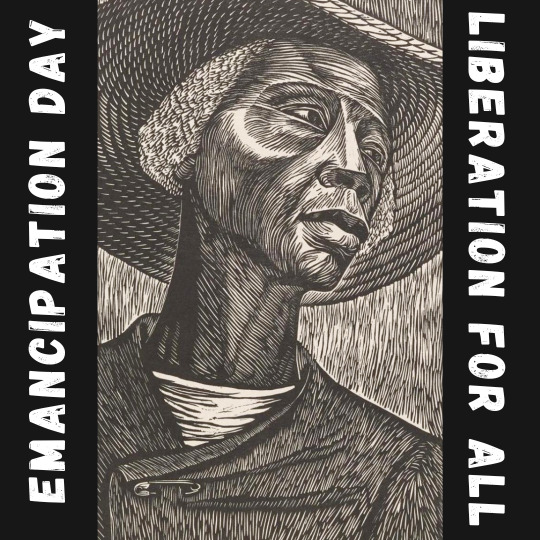
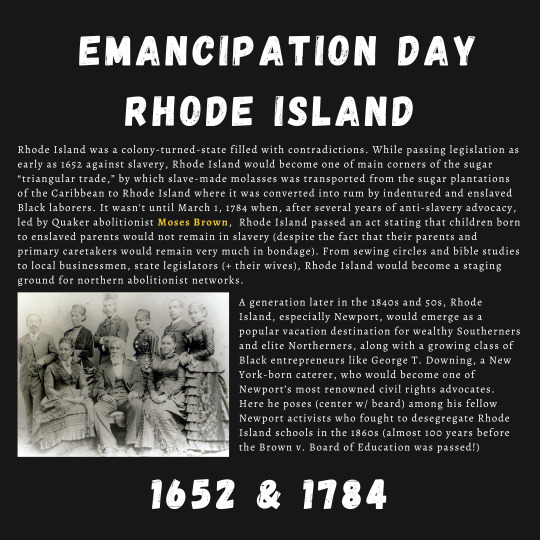
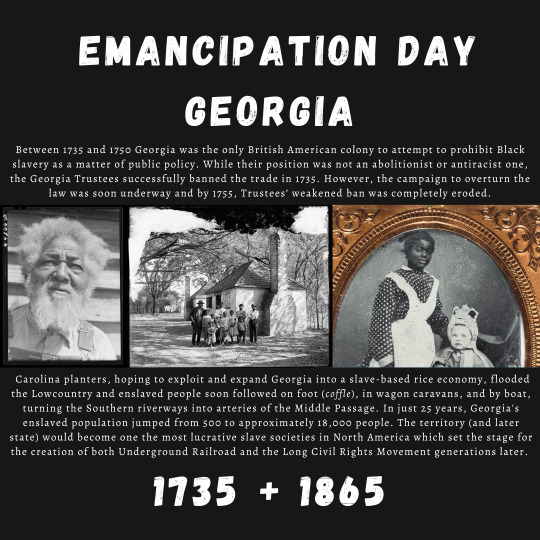
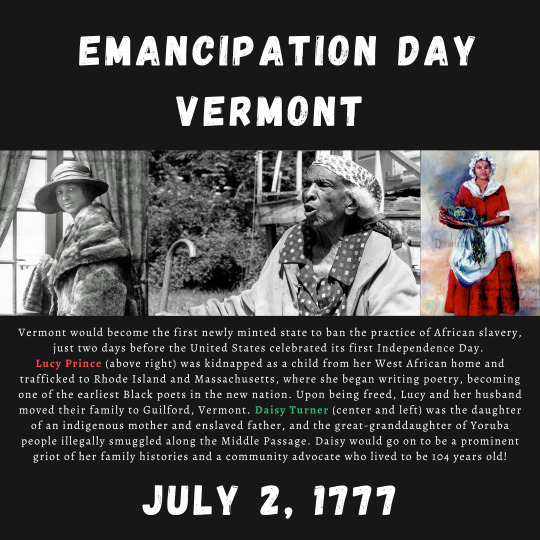
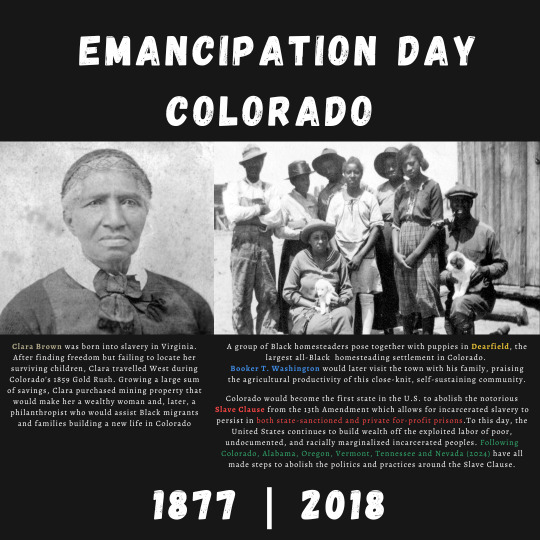
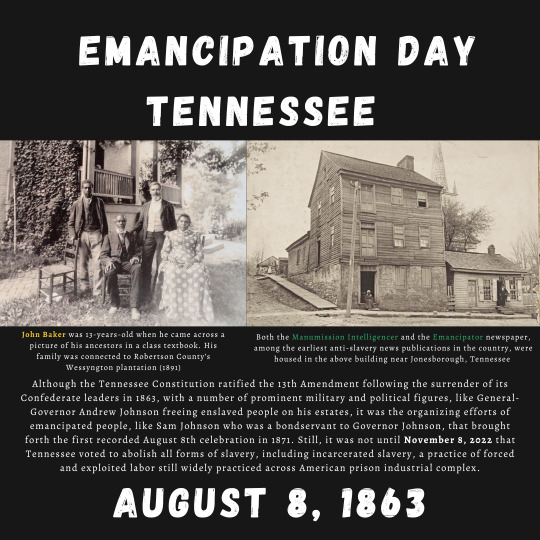
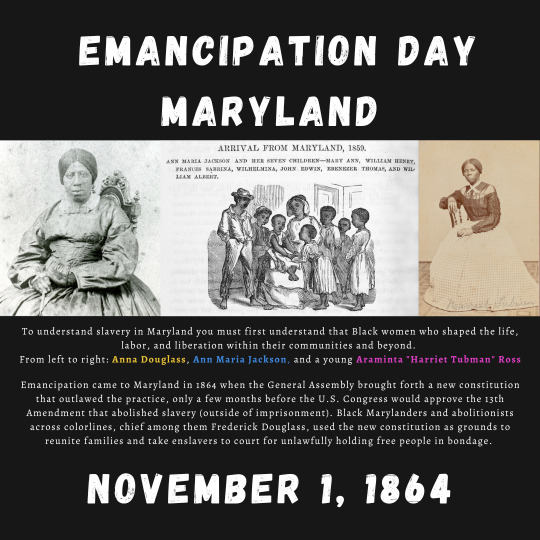
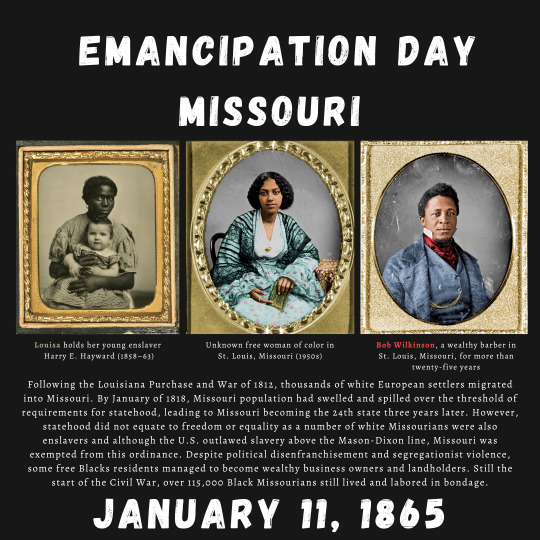
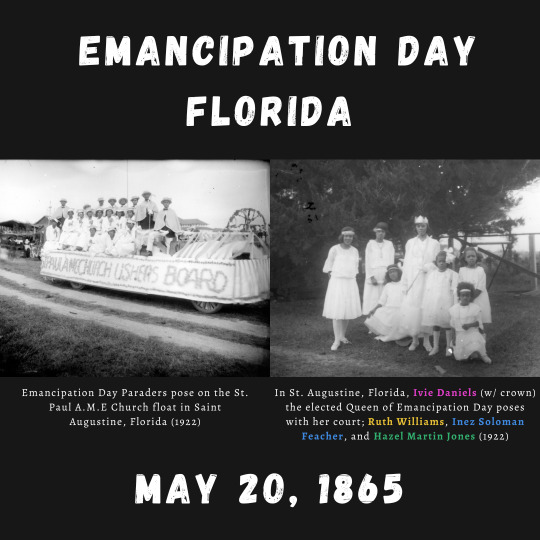
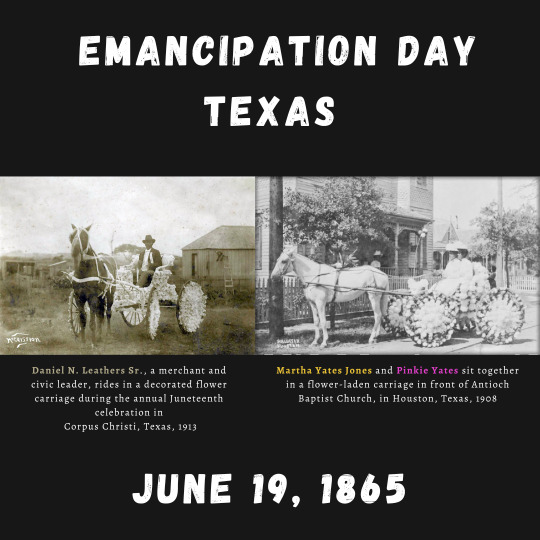
On August 8, 1863, Tennessee ratified the 13th Amendment, abolishing the domestic slave trade of Black + indigenous folks in the state. 159 years later in 2022, Tennessee folks voted to abolish all forms of slavery in the state, including the "Slavery Clause" that allows for incarcerated slavery to persist in both state-sanctioned + private for-profit prisons.To this day, the United States continues to build wealth off the exploited labor of impoverished, (dis)abled, undocumented + racially marginalized people who are incarcerated.
Each community and country that participated in the Transatlantic Slave Trade has its own emancipation day (or year).
And yet, as of 2023, Colorado, Alabama, Oregon, Vermont, Tennessee + Nevada (2024) are the only U.S. states who have made steps to abolish slavery in all its forms. That's not even touching how slavery, both state-sanctioned and illegal bondage, continues to bleed into our everyday places from child labor + forced s*x work to penal plantations and chocolate factories (looking at you at hershey chocolate)
In this second wave of Jim & Jane Crow flooding our world, we must arm ourselves with the tools to disrupt systems, distribute resources + deepen our collective action + good trouble ~
If you wanna explore the full Emancipation post + readings, come join us in the garden community over on Patreon where we upRoot our miseducation through history lessons, community conversations + book talks + decolonizing our everyday practic, our classrooms + our communities.
Reclaim your emancipation + immerse yourself in the ancestral, antiracist liberation! 🖤✊🏾✨️
#prison abolition#our world#black lives matter#ecosystem of white supremacy#our history is your history#politics#13th amendment#padawan historian#cite black women#reclaim the fourth#emancipation day
88 notes
·
View notes
Note
Yunkai, Astapor, and Mereen were already in chaos because they were slave cities. I agree she was naive in thinking things would resolve themselves after merely overthrowing slavery, as reconstruction is notoriously fickle and tricky business. But it’s hardly just vanity, considering she herself had been a slave. And abolition IS a step forward, even if it’s not the final step like she thought
She was not a slave.
Her brother offered her to Khal Drogo as a wife. Or "gifted" her in exchange for an expected return, which is undeniably unjust and cruel abuse based entirely on the patriarchical power that men have over women in Westeros and Essos. It was a marriage contract in its starkest, least romanticized, objectifying, exploitative form.
But she was not an actual slave, with no rights, no status, no power. No more than any girl in Westeros who is married off for a political alliance. It is not the same as slavery, even if Dany likens her fate to being sold when talking about it with Xaro.
She owned her own slaves, her "handmaidens" Irri, Jhiqui and Doreah, gifted to her as wedding presents. Drogo enslaved a whole town and the suvivors of two khalasars, and she barely batted an eye, and only the rape of Eroeh inspired her to shift the ownership of the female slaves to herself, including Mirri whom she later murdered with fire.
Dany was a slaver herself. Not a slave.
And you are missing my point. Dany was not "abolishing" anything. She decided to have all the Astapori slavers (and tokar-wearing freeborn aged 12 and upward) killed, essentially on a whim, because it was cheaper than buying the Unsullied and felt like an easy win against some evil men. Afterwards, the Unsullied followed her in the exact same way they would have if she had simply bought them, no thought of making their own plans for their own lives with their sudden freedom. What a bargain! Oh, and those pesky civillians chose to follow her too, can't be helped.
She didn't go in with the intention to end slavery, it was a series of spontaneous decisions that each 100% benefitted her short-term conquest plans and felt satisfying because it meant violence or humiliation towards a cruel class of elite slavers who had treated her much more rudely than the elite class of slavers at Qarth that she had apparently no problem with at all.
She was taking a cut from slave sales in Meereen before she even decided to stay there to see through her "abolition" project. She forced random free people into unpaid labor. It was complete vanity, briefly joined by the awkward feeling of guilt and horror at her own violent impact. She hated that it wasn't a quick fix to make herself feel powerful and just, because it was vanity.
Also, chaos is not what was going on in Slaver's Bay before she arrived. Horrific exploitation, yes. Unbelievable cruelty, yes. Injustice that utterly needed ending, yes. Chaos, with mass starvation, rampant disease, civil war in the streets, war between states, and no functional authority to establish the rule of law? No. That's the thing that happened because Dany was being "naive" with the fate of thousands of people. "Naive" meaning "mass murder is the solution, yay, so simple!"
162 notes
·
View notes
Note
Favorite singer? I personally like Destroy Boys
Ion really got favourite's of things. But I can list some mfs I listen to. I just burned a new cd not that long ago, so imma just list off some of the bands and some song recs for those (and I think I've heard destroy boys before. Not personally a fan, but their stuff seems pretty cool).
CRASS: They've got a bomb. End Result. Big A Little a. Systematic Death. Do they owe us a living?
VOID: My rules. Condensed flesh. Who are you?
Dead Kennedys: Dog Bite. Kill the poor. Holiday in Cambodia. California uber alles.
Poison Idea: In my headache. Its an action.
Capitalist Casualties: Greedy Bastards. Mouthfed. Violence Junkie.
Nuclear Man: Nuke-Man. Warhead.
Limp Wrist: Fake fags. Dead Weight. Just like you. Thick skin. Want us dead. Spun.
Subhumans: I don't wanna die. Rats. Apathy. Work-Rest-Play-Die. Mickey Mouse is dead. No.
Discharge: Why? Drunk with power. Ain't no feeble bastard. Does this system work.
Icons of Filth: Fucked up state. Why so limited? Mentally murdered.
T.S.O.L.: Abolish government/ silent majority. Red shadows. Flowers by the door. It's gray.
S.O.A.: Warzone. Gang Fight.
The Disrupters: Animal farm. Rot in hell. Pigs in blue.
Government Warning: Killing for fun. Slave labor. Factory line. Paranoid mess. Endless slaughter.
Disrupt: Protest.
DIRT: Master race. Eyes to see. Hiroshima. Democracy.
Negative Approach: What ever I do. Ready to fight.
Minor Threat: I don't wanna hear it. In my eyes. Seeing red.
ILL Repute: Book and its cover.
Conflict: From protest to resistance. The serenade is dead. Berkshire cunt.
The Shitlickers: Warsystem.
Suicidal Tendencies: Two-sided politics. You can't bring me down. War inside my head. Institutionalized.
Aus-Rotten: The system works for them. When you support those fucking bastards. (They also have a version of Berkshire cunt)
Ultra Violent: Dead gerneration. Where angels dare not tread. Crime for revenge.
Disorder: Fight the right.
Civil Disobedience: Manufactured citizens. Planet of the fakes.
The Crucifucks: Legal genocide. Annual report.
A Global Threat: Fucking racist maggots.
Urban Waste: No hope.
Feederz: Jesus. Gut Rage.
Black Flag: Nervous Breakdown. My war. Rise above.
30 notes
·
View notes
Note
I'm glad your blog exists. It's refreshing to see someone unafraid to do some critical thinking on why and how this gender stuff is the way it is without it also coming from a misogynist. Strange how the wrongthink curmudgeonly old TERFs we should totally beat the shit out of have more sense than the people who make them out to be the biggest threat even when faced with leaders who wish death on everyone involved. Of course, you and I don't hold the exact same opinions, but I have a feeling that not sharing a hive mind is more accepted in your circles. You folks really aren't as bad as I've been led to believe. Take care.
sorry for taking so long to reply to this but thank you very much I'm really happy to have changed your perception of the Evil Terfs a bit lol. i definitely am in support of people forming their own opinions on every issue rather than blindly falling into groupthink. this isn't the borg. I mean I'm a gun slinging environmentalist anti capitalist anti organized religion pro spirituality gender critical feminist who genuinely believes aliens are visiting us & the government knows but is hiding it. I want to legalize all drugs, give free guns to every woman, imprison johns, massacre pimps & pornographers & rapists & pedophiles & wife beaters/killers, provide free housing, healthcare, food, etc for all, demolish giant corporations, ban people from profiting on overseas slave labor, restructure the entire penal system, defund the military, abolish the current tax system, and ideally establish a legitimate matriarchy eventually bc men having power has brought nothing but ruin on humanity & the planet.
so like. needless to say not many people agree with me on every single one of those issues loI, I just go with what makes sense to me without trying to fall into party lines in my country bc I truly fucking hate both republicans & democrats & politicians in general. they're literally just different flavors of the same war mongering money grubbing authoritarian corrupt capitalist liars.
20 notes
·
View notes
Text
The USSR has many successes and many failures. This is a fact of history. However, the truth should be defended. To say the gulag system is the backbone of the Soviet 'success' is highly exaggerated at best and a lie at worst.
In 1926, the soviet population was 147 million people. In the same year, 75 million people were employed in the USSR; approximately 50% of the population. The gulag system, in total, had approximately 18 million people pass through it from 1922 to its abolishment in 1960. On a per-year basis, the amount of laborers in the gulag system is less than 1% of the population* (of course, this is just taking a very crude estimate by dividing the number by year. In reality the actual amount would've varied, especially during the great purge and WW2). If we compare this figure to actual slave societies, e.g., the american south, where forced labor made up from 30% to more than 50% of local populations, The statistics simply do not add up. We can even compare these figures to the american prison system now, who every year hold the world's largest number of prisoners paid slavery wages (ranging between 1.8-2 million people per year).
The gulag system is built on the idea of "reform through labor". The efficacy or use of this concept is up to debate. Sure, the labor might be paid for in food or wages, but at the end of thee day, the labor is forced. Indeed even in the USSR this debate lead to the abolishment of the gulag system itself. Likewise in China, the laogai and countryside labor programs were also abolished (something that actual slave societies tend not to do). Ultimately, the problem with the gulag or laogai system is the problem with every prison system on the planet: innocent people will slip through, sometimes through all of the protections put in place (swiss cheese theory).
Should the gulag system be copied today? No. Will re-education and reform be needed after a revolution? Almost certainly, yes. How will these contradictions be resolved? That is for debate. Learn from past experiments, from the successes and failures of each revolution's reform, and, while taking those into account, apply dialectical materialism to your current conditions.
21 notes
·
View notes
Text
Posted on June 17, 2021 by Anonymous FW
The Industrial Workers of the World is one of the few unions that has always understood the importance of organizing Black workers to prevent capitalist abuse of all workers, vowing in its earliest days to never charter a segregated Branch or Local. The IWW has long fought to organize Black labor against being used as expendable and underpaid scabs, as well as for the abolition of all impediments to Black liberation.
Black liberation is the struggle for freedom and equality for Black people; a continuous fight against the attitudes and institutions that dehumanize Black people in order to propagate and maintain white supremacy. The Black Liberation Movement is most often associated with the Civil Rights Movement of the 1960s, but has actually existed for hundreds of years. Its history spans from the slave revolts on the shores of West Africa from where we were stolen to the protests still taking place today. A key focus of this current phase of the movement is the need to liberate Black people from the dual oppression of police and of capitalism, just as the IWW seeks to liberate the entire working class from those very same clutches.
Whenever I am asked about the history of unions and the labor movement and how they intersect with Black history, I’m always sure to talk about the Industrial Workers of the World. From Lucy Parsons, a Black woman and founding member of the Union, to Maritime Worker Ben Fletcher’s efforts to establish one of the most diverse institutions of its time, Black Wobblies shaped the IWW and its commitment to the struggle for Black liberation from the very beginning. Additionally, I emphasize this Union’s dedication to organizing workers of color over 100 years ago when Samuel Gompers’ American Federation of Labor would, at best, organize segregated unions if they engaged with Black labor at all.
One event I typically recount occurred in May 1912 in Alexandria, Louisiana, as William D. “Big Bill” Haywood stood before the Brotherhood of Timber Workers. The Brotherhood was a national union of lumberjacks and millworkers with members in Texas, Arkansas, and Louisiana, which had a large population of both Black and white workers. The organization had been ignored by other unions and chose to affiliate with the IWW instead. Haywood was puzzled as he looked out at the entirely white audience of timber workers, and he inquired why there were no Black workers at the meeting. In 1912, racially desegregated meetings were illegal everywhere in the state of Louisiana, and Haywood was informed that the rest of the workers were meeting elsewhere.
“You work in the same mills together. Sometimes a Black man and a white man may chop down the same tree together […] This can’t be done intelligently by passing resolutions here and then sending them out to another room for the Black men to act upon. Why not be sensible about this and call the Negroes into this convention?” Haywood continued: “If it is against the law, this is one time when the law should be broken.” Following this, the Black timbermen joined the suddenly desegregated meeting and, in the election of delegates, both Black and white members were elected to represent the Brotherhood of Timber Workers at their 1912 convention.
The IWW’s present-day commitment to Black liberation is perhaps best evidenced by the recent work of the Incarcerated Workers Organizing Committee (IWOC). This rank-and-file union of the IWW seeks to abolish prison slavery and improve conditions within prisons, jails, and detention centers through direct action. Prison slavery is one of the most perverse systems of worker exploitation and white supremacy in this nation today. Many incarcerated workers find themselves working on plantations and roadcrews, and engaging in all manner of work tasks necessary for the prison to operate. These workers also manufacture products and provide services for private corporations, thereby generating their captor’s wealth while receiving mere pennies per hour for their labor if they are even compensated at all.
Furthermore, these incarcerated comrades are subjected to unsafe and inhumane living conditions. The prison-industrial complex is a system that affects all working class people but disproportionately targets and exploits Black people. In order to fight this system, IWOC has participated in organizing several actions including the 2016 and 2018 U.S. prison strikes. These demonstrations, such as work stoppages and hunger strikes organized in solidarity with incarcerated workers at many prisons across the United States in an attempt to win specific demands and recognitions that included improvements to prison conditions, paying incarcerated workers prevailing wage for their labor, and bring an immediate end to racially biased judicial overreach, such as overcharging, over-sentencing, and baseless denials of parole for Black and Brown people.
The IWW has several chartered IWOC branches and continues to provide support through initiatives such as the case reader program where IWW members assist in getting cases overturned and prisoners released. Building committees among the currently and formerly incarcerated workers in the struggle brings awareness to the public about conditions these workers face and provides resources for them to advocate for themselves through direct action within the system that enslaves them. The IWW’s fight for prison abolition is just one example of our One Big Union’s continued commitment to the liberation of Black people in North America and around the world.
The Industrial Workers of the World has always been and continues to be the most important union when it comes to the struggle for Black liberation in the workplace. I encourage every Wobbly to learn and understand what is meant by –and necessary for– true Black liberation, for without this understanding, it will be impossible to liberate all working people from the repression and subjugation of race and class. And to all Black workers who are not yet Wobblies, I call on you to join the One Big Union. It is the only union that has been consistently fighting alongside Black labor for the liberation of our people since the beginning of the 20th century.
.
Fellow Worker Alki, an at-large member affiliated with IU660, describes himself as a Black Anarchist Wobbly, as well as an essayist, historian, and media creator focused on organized labor and other radical movements from an historical perspective.
266 notes
·
View notes
Text
Okay, but do you know all the weird takes about how it's kinda okay that the Empire is a fascist hellscape run by a sadistic death cultist because unlike the Republic they also abolished slavery and that's the reason Anakin/Vader supports it?
I can actually see this being true if Sheev had a little lightbulb moment in the middle of some kind of anti-slavery tirade of Anakin's and transformed it into a brilliant authoritarian policy strategy, because, look, if you think about it most OT-era works portray slavery in the form of prison labor and death camps, not Tattooine-style slavery that Anakin experienced.
In fact, I would be completely unsurprised if the early Empire on one hand cracked down on trad slavery harder than the Republic ever did just for the PR points (you see? Our GLORIOUSLY STRONG REGIME can now DEAL WITH CRIME in ways the Republic could only dream of!) while constructing a huge machinery of exploitative prison labor and a justice system that sends you there for any small infraction or any hint of dissidence (as portrayed in Andor) on the other.
This would also do what Palpatine best loves doing - further centralize power, because while slaveowners work for their own personal interests and seem to often be criminal cartels, if the slave labor is prison labor it's the authoritarian state that's controlling the, uh, means of production.
And, more importantly, Anakin would be completely untroubled by this, because if there's one thing that we know about Anakin, it's that he is 100% cool with people being treated very cruelly as long as they're bad people.
In fact, this should probably have been a Clone Wars arc, except so many people IRL are fully onboard the "it's okay to give inhumane treatment to criminals/bad people" bandwagon that it would probably have been widely misunderstood.
Also, no real world parallels at all here! Nothing to say about the for-profit prison systems and how they tie into slavery, nope!
80 notes
·
View notes